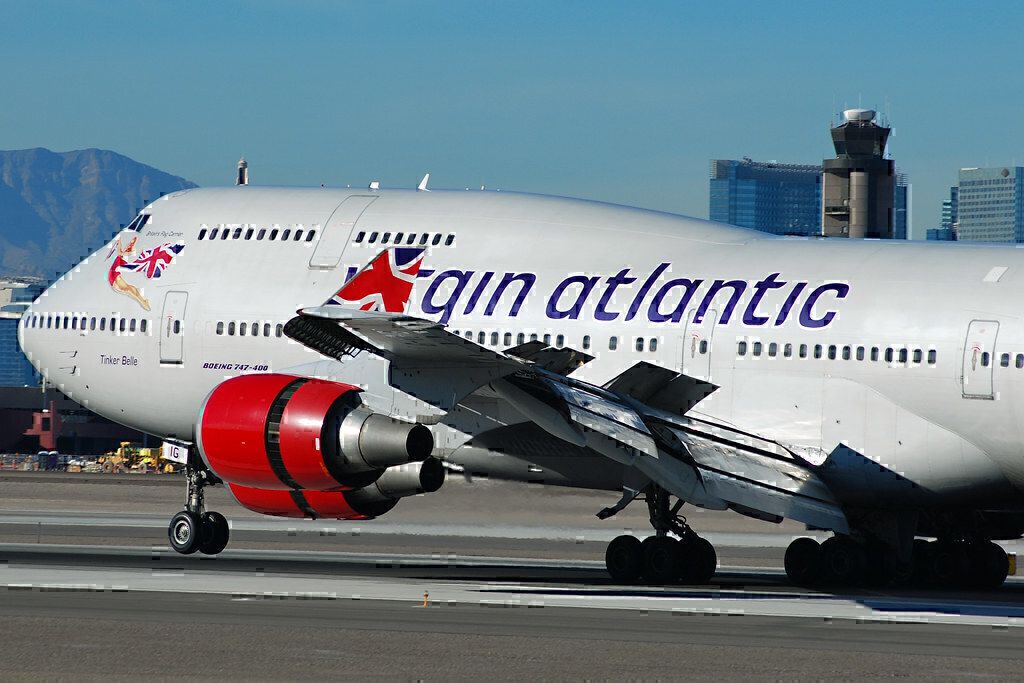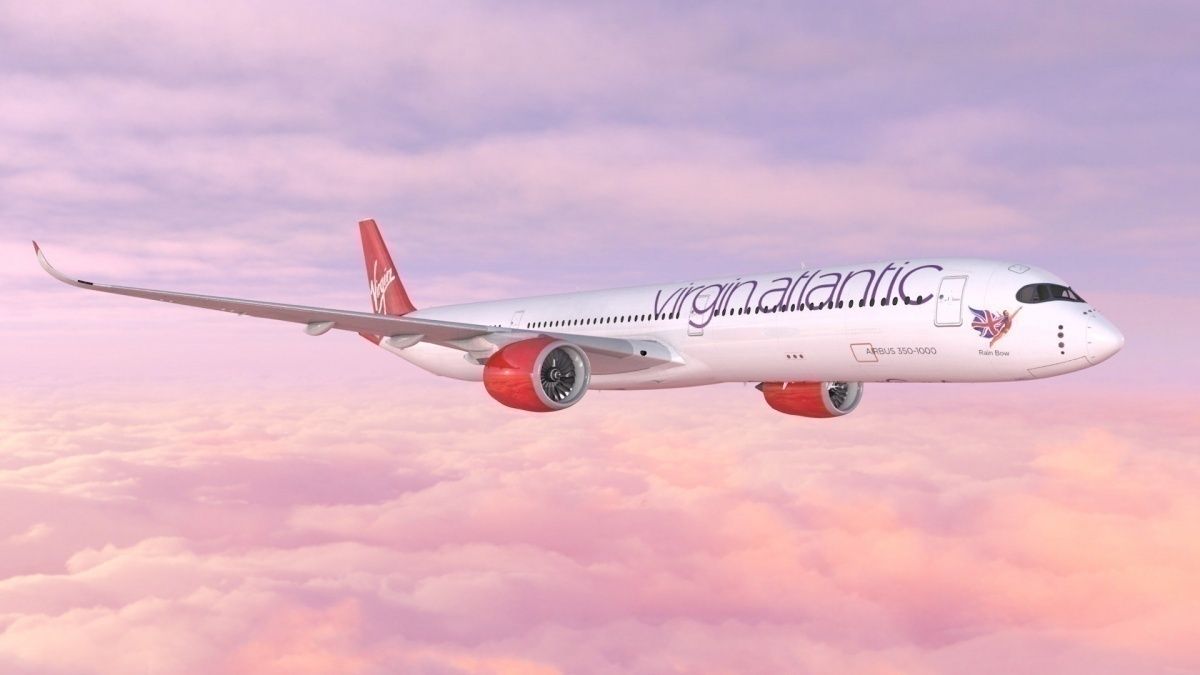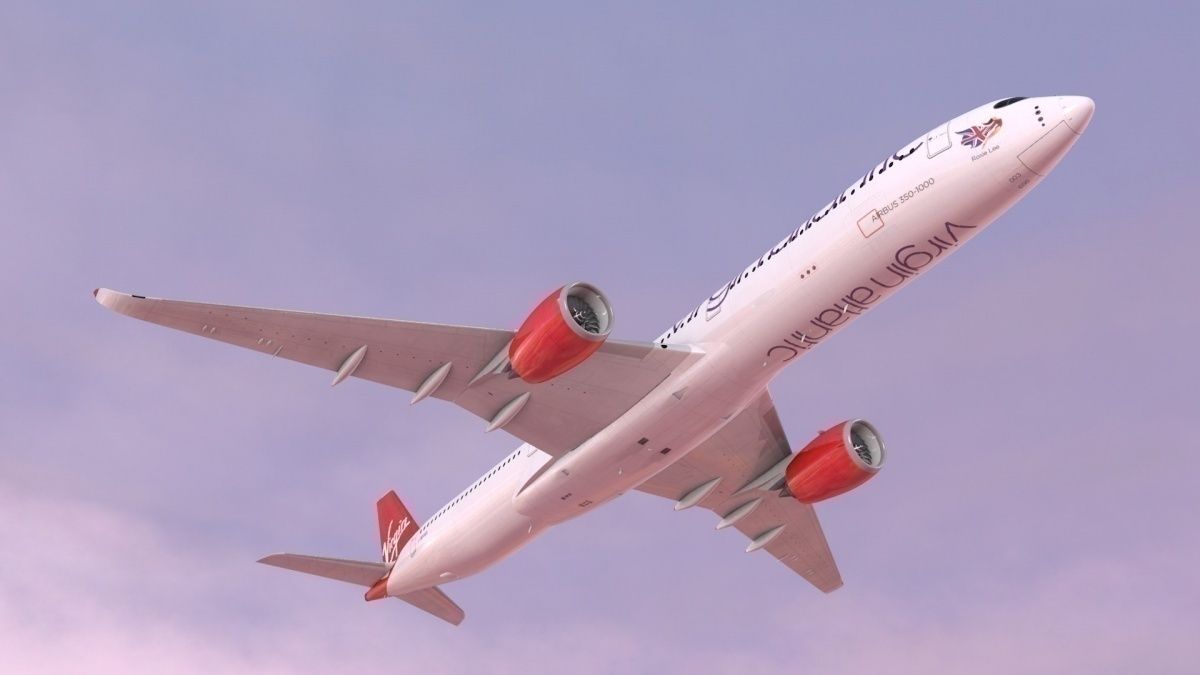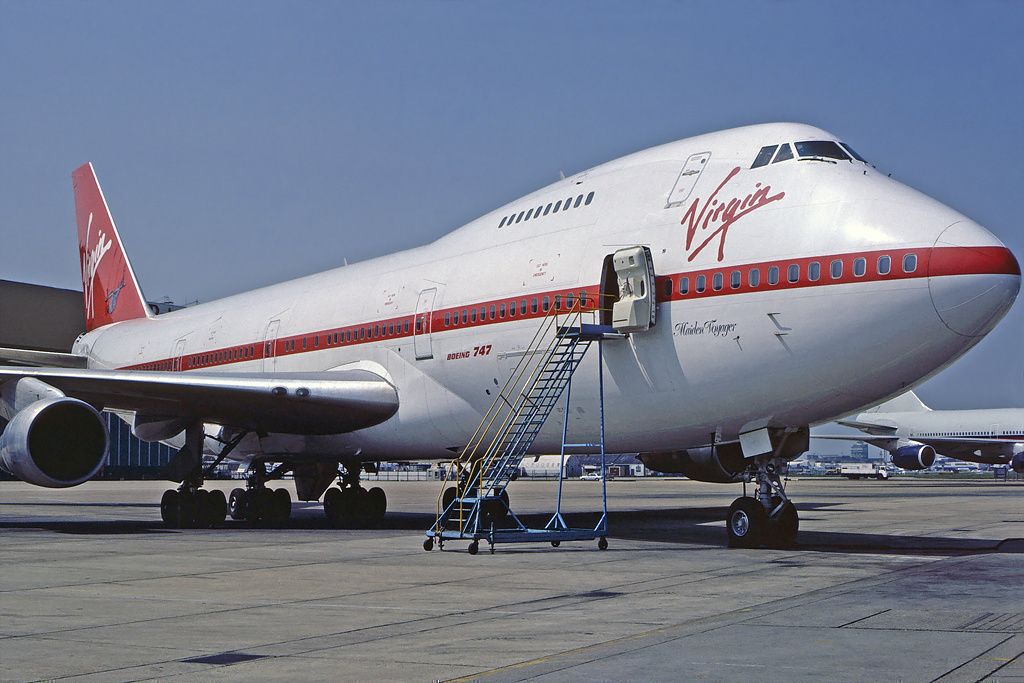Following its plans to retire its Boeing 747 fleet by 2021, Virgin Atlantic yesterday said goodbye to another of its aircraft. We take a look at the impact of the retirement and Virgin's upcoming fleet plans.
Farewell for a queen
Yesterday (23rd November 2019), Virgin Atlantic bid farewell to Tinker Belle, one of its remaining 747-400 aircraft. The airline posted on Twitter to praise the aircraft's "incredible service" of 23.5 years. Leaving the fleet, the aircraft is now stored at St Athan RAF Station in Wales, according to Planespotters. But the airline will eventually scrap the aircraft.
This retirement leaves Virgin Atlantic with just seven 747 aircraft. All of these are expected to retire within the next two years.
Yesterday we said goodbye to Tinker Belle, one of our @Boeing 747-400 aircraft. Tinker Belle provided our customers and people with incredible service for 23.5 years and she will never be forgotten ❤️
What’s your favourite memory onboard this magical queen? ✨ pic.twitter.com/GTOkbjBEM1
— Virgin Atlantic (@VirginAtlantic) November 23, 2019
The replacements
Of course, Virgin would not be happy retiring its once-flagship aircraft if the alternative was not much better. Earlier this year, Virgin received the first of its Airbus A350-1000 aircraft. The delivery is one of 12 airplanes that the airline will receive in the coming years.
It's these 12 aircraft that Virgin has designated as replacements for the 747-400. The reason for this is that it helps Virgin streamline its aircraft with its mission.
In a press release in August prior to the delivery, the airline said:
"In 2019, we expect the first of our order of twelve Airbus A350-1000s which will eventually replace our Boeing 747-400s and Airbus A340-600s."
Sir Richard Branson has taken an avid interest in the environment when it comes to his airline. He wants to rival British Airways for the carbon neutral top spot by 2050. And the A350-1000 will help him to get there.
Compared with the 747-400, the A350-1000 is 30% more fuel-efficient. This puts it firmly in line with Branson's goals. He intends for all his aircraft to operate 25-30% more efficiently than at the present moment.
Good for the environment, good for growth
However, it's clear that the retirement of the 747 fleet does not only bring benefits for Virgin's carbon footprint. The airline is now able to drive expansion.
And that's in part thanks to the integrity of the A350-1000. The aircraft burns less fuel which means that it's cheaper to fly - a good economical move for Virgin. And, what's more, by investing in A350-1000, Virgin has upped its mileage. These aircraft are able to cover a larger range and do it whilst consuming less fuel. Accordingly, Virgin has been able to create new routes.
After its inaugural flight from London to New York, the airline has bigger plans still for its A350 fleet. 2020 will see four new routes open operating the A350-1000. Virgin will be flying services to and from:
- Johannesburg, South Africa, daily from March 2020.
- Los Angeles, California, daily from April 2020.
- San Francisco, California, daily from May 2020.
- Lagos, Nigeria, daily from August 2020.
An emotional change
And yet, whilst everything with the new aircraft seems topically sensible and smart, it's with a heavy heart that we bid adieu to Virgin's 747. It was an iconic aircraft that we're seeing less and less of in our skies. Virgin acquired their first jumbo jet, a 747-200, back in June 1984 and it operated services between London Gatwick and Newark.
In its heyday, the aircraft also allowed the airline to do things which the new aircraft are better at now; opening new routes and establishing a solid airline presence.
Are you sad to see Virgin's 747 retire? Let us know in the comments.




